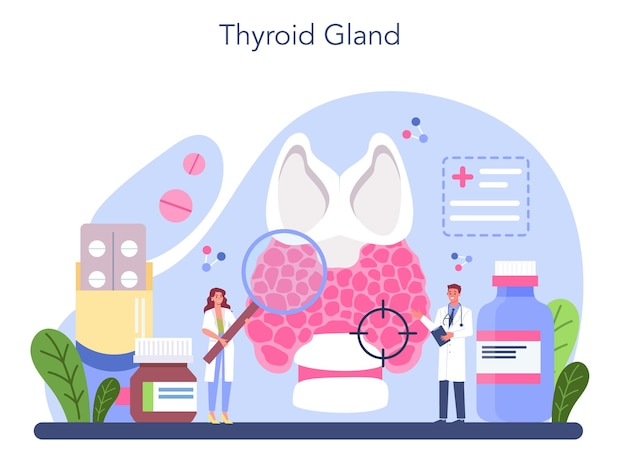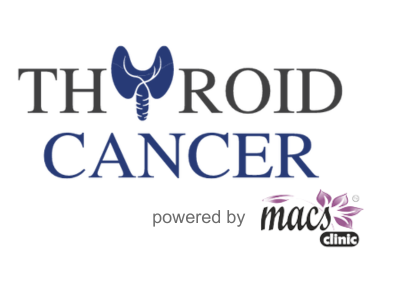Follicular Thyroid Cancer
Follicular thyroid cancer is the second most common type of thyroid cancer accounting for about 10 to 15%. It usually has an excellent prognosis and treatment, most commonly surgery, and is often successful. The options fo surgery include conventional to robotic surgery. Many of our patients undergo robotic surgery by RABIT technique for follicular cancer. This site is developed by well-known expert on thyroid surgery Dr Sandeep Nayak from MACS Clinic, Bangalore, India
Follicular Thyroid Cancer is a differentiated type of thyroid cancer, more common in females, often requiring surgery and radioactive iodine therapy for management. It’s important to note that follicular thyroid cancer is often curable, especially if diagnosed early. The outlook and prognosis can vary depending on the stage of the cancer and individual factors.
Follicular Thyroid Cancer: Understanding the Condition
Follicular thyroid cancer is the second most common type of thyroid cancer. It is considered a well-differentiated cancer and is highly curable, although it is more aggressive than papillary thyroid cancer. It occurs when there is abnormal growth of the cells in the thyroid gland. The symptoms of follicular thyroid cancer are not different from other thyroid cancers. They may include a swelling in the neck or a painless lump there. They can also cause changes in voice quality and difficulty in swallowing. Follicular thyroid cancer is more aggressive than papillary cancer. It is detected in older people, especially women. Unlike papillary thyroid cancer which mainly spreads to lymph nodes, follicular cancer have a tendency to spread to bone. Rarely, patients can come with symptoms of bone spread.
The ICD-10 code for follicular thyroid cancer is C73.9. (ICD-10 is the tenth edition of the International Classification of Diseases (ICD), a system used for medical classification worldwide.)

Have a Question?
Characteristics of Follicular Thyroid Cancer
It affects individuals aged 40 – 60 years
Follicular cancer affects women with a ratio of 3:1 as compared to men
The tumor’s size determines the extent of the cancer spread
Follicular cancer is not linked to radiation as in the case of papillary thyroid cancer
Young patients with small lesions have a better cure rate.
Follicular thyroid cancer spread refers to cancer invading the blood vessels away from the thyroid gland and metastasising the lungs or bones and other distant organs. Distant spread of follicular cancer occurs more often than in papillary cancer.

Diagnosis of Follicular Carcinoma of thyroid:
Fine needle aspiration cytology (FNAC) is the diagnostic test that is used to diagnose thyroid nodules. If FNAC suggests a follicular neoplasm, at least a thyroid lobectomy or total thyroidectomy is performed to establish the histopathological diagnosis. Capsular invasion and vascular invasion by tumor cells are key features for diagnosing follicular carcinoma. If follicular cells are found on cytological testing (FNAC), a hemithyroidectomy is performed to distinguish between follicular adenoma and follicular carcinoma. This is followed by a completion thyroidectomy and postoperative radioiodine ablation if carcinoma is confirmed. The diagnosis of follicular cancer happens only after surgery in most of the cases.
Imaging tests, such as ultrasound exams, may also be ordered to get a better sense of whether there is a diagnosis of follicular thyroid cancer. These tests are typically performed if there is a suspicious lump in the neck. They cannot confirm cancer.
In situations where patients come with a symptoms due to spread to bone, like pain or swelling, a diagnosis is confirmed with a biopsy.
Management of Follicular Thyroid Cancer
Surgery–
Please read the content on follicular neoplasm to understand the surgical approach to follicular carcinoma of thyroid. The diagnosis of follicular thyroid cacner happens only after the surgical specimen is sent for histological examination. If only part of the thyroid gland has been removed, in that case a total thyroidectomy is recommended. The procedure can be performed either by conventional open surgery or robotic surgery by RABIT technique.
Radioactive Iodine Therapy (RAI) –
Radioactive iodine therapy destroys the remaining cancer cells and cancer-affected thyroid if there is evidence related to it. Radioactive iodine therapy is also recommended for patients with large-sized tumors or those with aggressive microscopic features or affected lymph nodes. The elevated TSH levels indicate effective treatment when tested.
Thyroid Hormone Replacement Therapy –
Damaged or removed thyroid means the patients will need thyroid hormone replacement therapy to maintain their normal thyroid function. They need to get annual blood thyroglobulin level checks. They also need high-resolution ultrasound neck tests. These tests check the thyroid levels and watch for thyroid cancer.
Metastatic Follicular Thyroid Cancer Treatment –
Oncologists, including Dr. Sandeep Nayak, may recommend surgery to remove the part involved or external beam radiation therapy, radioactive iodine therapy, targeted therapy, or chemotherapy to prevent cancer from spreading to other parts of the body. Many of the follicular cancers that have spread to other parts of the body including bones can be treated effectively with excellent long term survival.
The treatment of thyroid cancers depends on the patient’s health, the cancer’s spread, and the tumor’s size. In patients with large-sized tumors, most oncologists suggest total thyroidectomy, radioiodine therapy, and thyroid medication can reduce the recurrence rate and lower the mortality rate as well.
You must remember that ….
Every cancer patient requires individualised treatments for the best possible outcomes. Dr Sandeep Nayak, a leading expert in scarless thyroid surgery recommends a detailed investigation and evaluation. He and his team employ a comprehensive approach tailored to each patient’s unique situation.
There is no reason for you to face follicular thyroid cancer alone. Gain insights into treatment strategies, identify symptoms, and partner with specialists for comprehensive support and tailored treatment plans.
How to Reach Us!
Each year, our center welcomes many patients from all corners of the globe. With our extensive experience, we have streamlined the process to make it effortless for you to visit Bangalore for your evaluation, scans, biopsies, and surgery all in one trip. For your convenience, a significant portion of the follow-up can be conducted through online consultations. Additionally, we are committed to assisting you with postoperative treatment in your home country or city, eliminating the need for you to return to Bangalore, India.
Frequently Asked Questions
What is follicular thyroid cancer?
Follicular thyroid cancer is a type of cancer that develops in the follicular cells of the thyroid gland. It is one of the most common type of thyroid cancer and accounts for almost 10 – 15% of thyroid cancer cases.
What causes follicular thyroid cancer?
The exact cause of follicular thyroid cancer is not known. Some genetic mutations or alterations in the DNA of thyroid cells could be the reason for follicular thyroid cancer. Family history of thyroid cancer, genetic syndromes, and radiation exposure can increase the risk of follicular thyroid cancer.
Can follicular thyroid cancer spread to other parts of the body?
Yes, follicular thyroid cancer can spread ie., metastasize to other parts of the body. The cancer cells travel through the bloodstream to reach distant organs such as the bones and the lungs. The extent of cancer spread depends upon the size of the tumor, the patient’s health and the cancer stage.
Here’s what we can do…. We help in taking the most suitable treatment option in battling follicular thyroid cancer. For consultation and guidance, don’t hesitate to get in touch with us.
